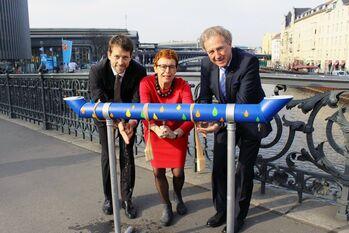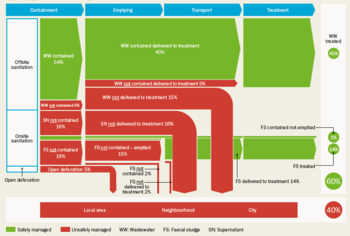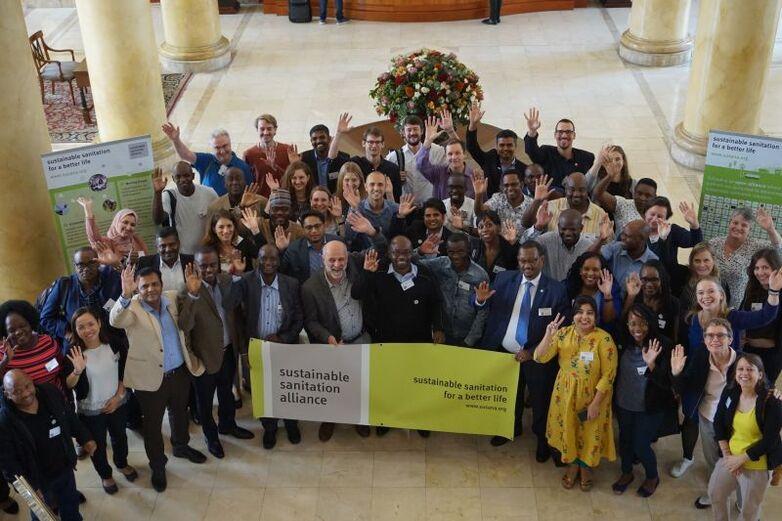Approach
The supraregional project addresses integrated sanitation chains including relevant technical, operational, institutional and financial aspects. This provides management personnel in partner countries and professionals with realistic and robust examples of how the SDG for sanitation can be implemented in a local, municipal context.
The advisory project also supports other development cooperation projects in implementing innovative, gender-sensitive approaches to sustainable sanitation. Digital applications are taken into account. The project shares implementation experience with German and international development cooperation and facilitates the process of transferring innovations and flagship projects to a local context.
Furthermore, it translates strategies for sustainable sanitation and hygiene in the context of global agendas into formats appropriate for policies such as international policy documents. This enables implementation in the context of the BMZ water strategy.
Thanks to international exchange in the Sustainable Sanitation Alliance (SuSanA), approaches to sanitation in the context of global agendas are discussed across sectors and structured expert knowledge is disseminated in a targeted way.
The supraregional project works closely with the German development cooperation on sanitation and wastewater management and with other (global) projects, especially with Sanitation for Millions and Sustainable Water Policy. In addition, the project acts as the secretariat for the SuSanA network.
Results
The planning framework for urban sanitation services for an additional 30 million people is improved with the help of urban shit flow diagrams (SFDs). These are developed with experts and management personnel in the partner countries and play an increasingly important role in clarifying and guiding the planning of urban sanitation, in particular.
In cooperation with various projects, experiences are gathered in implementing innovative solutions for sustainable sanitation. These are institutionalised at ministry and authority level in the partner countries and include water, sanitation supply and hygiene (WASH) in schools. The topics also include digital applications such as an app for operation and maintenance. New concepts, in the area of menstrual hygiene, for example, are being developed further and disseminated within developed cooperation and in the global discourse.
In addition, approaches to integrated and climate-sensitive urban sanitation systems are evaluated, prepared and communicated at international level with regard to technical, operational and financial aspects. The SuSanA network is consistently aligned with the challenges of the 2030 Agenda. For this purpose, approaches to monitoring of the local implementation of SDG target 6.2 are adopted, prepared and adequately documented.


